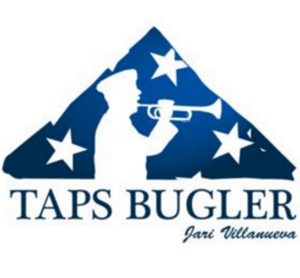A BUGLE STORY

The 26th North Carolina Regimental Band was a group of Moravian musicians who served as the band for the 26th North Carolina Troops, Confederated States of America. The band enlisted in April of 1862 and served until the end of the war. They traveled with the unit and performed concerts, dress, parades, and church services for the men of the 26th. These musicians also found themselves playing on the battlefield at Gettysburg during the midst of the most furious fighting. A British observer wrote: “When the cannonade was at its height a Confederate band of music between the cemetery and ourselves, began to play polkas and waltzes, which sounded very curious, accompanied by the hissing and bursting of shells.”
After Gettysburg, the 26th NC Band returned to Virginia where it was to stay for the rest of the war. The band found themselves in the regular routine of army life-drilling, rehearsing, performing camp concerts, dress parades and serenades for General William W. Kirkland, the new commander of their brigade. The band also participated in a large formal review on September 11, 1863. AP Hill’s entire third Corps paraded in review for Robert E. Lee. This review of thirty thousand men also included seventeen bands and took two hours for the Corps to pass in review. Drilling large bodies of troops was no mean feat and bugle calls were important, not only for telling of time for duties in camp but also for maneuvering soldiers in the field. The band for the most part was exempt from field music duties but when the call came from above the band had to provide a cornet player to sound bugle calls. Julius Leinbach, a E Flat Bass player with the band kept a diary of his war time experiences.

From Julius Leinbach’s diary:
“General Kirkland took a new freak into his head. He sent for Sam and told him he wanted one of us to blow calls for brigade drill. I was selected for the job. He had sent a copy of tactics in which the various calls were given, and I was to memorize a few but there were so many and I could not know what commands he would give, that I was much in the condition of the small boy going to school without knowing his lessons. I had this consolation however that if I did not know the different calls, neither did the General, nor did the men so if I gave the wrong one, no one would be the wiser, so I put on a bold front as I walked up to headquarters at the appointed hour. I was put on a “fiery” steed and followed the General as he rode to the parade grounds. I could well imagine that the under officers and men were wondering what sort of circus performance was to come off.
The general gave his command as for instance, “By Battalion, Right Wheel,” which was repeated by the regimental and company officers. Then instead of saying, “March,” I was to give the prescribed call for that maneuver. Sometimes I remembered the correct call, mostly I knew no more than the veriest dunce in the ranks as to what tones I should play, but I blasted out something all the same and it answered the purpose. For two hours, this farce was kept up and then we rode back to camp, wiser men. I was never asked to repeat the performance.”









